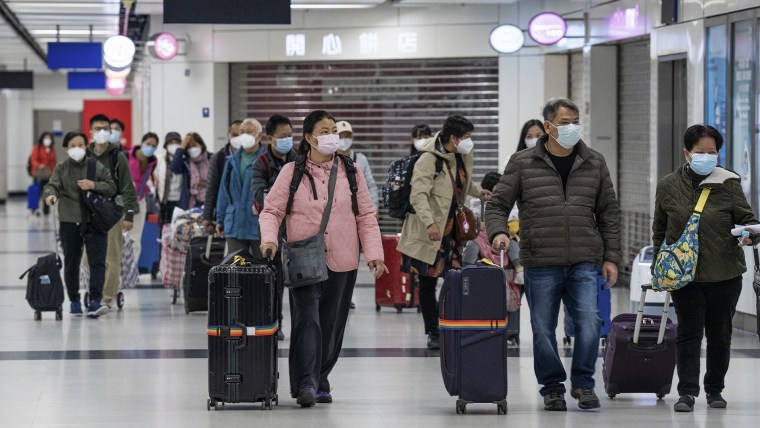Difficulty breathing, loss of taste and smell, and other lingering Covid symptoms tend to ease over time and may go away within a year, according to new research.
The findings may offer some reassurance to people whose frustration mounts as they continue to feel sick long after their initial Covid infection.
«For the vast majority of patients,» said study author Maytal Bivas-Benita, «this will get better.»
The new research, a collaboration between the KI Research Institute and Maccabi Healthcare Services in Israel, was published Wednesday in The BMJa medical journal.
Bivas-Benita and her colleagues combed through the medical records, looking for documentation of symptoms lasting more than a month, of nearly 2 million people who sought Covid tests from the start of the pandemic through October 2021.
The study did not include patients who developed long-covid from omicron or its subvariants, but doctors in the US say they are seeing new patients with long-term covid symptoms after an omicron infection.
The patients included in the new study generally had mild Covid illnesses. That is, they were worried enough about their symptoms to make a doctor’s appointment, but not sick enough to be hospitalized.
Most common prolonged symptoms of Covid
Three years into the pandemic, it’s unclear exactly how many people have long-term Covid. Estimates have ranged from 5% to more than 30% of covid cases, largely because there is no standard definition of the condition.
But there are similarities between many patients.
The most common symptoms reported two months after initial Covid infection included:
Subsequent strep throat infections were also frequently reported, the study found.
Other symptoms, such as chest pain, cough, muscle aches, and hair loss, tended to disappear within a year. Women were more likely than men to talk to their doctors about covid-related hair loss.
Loss of taste and smell persists.
Regardless of when they occur, it’s understandable that all of these symptoms leave patients «confused and concerned,» Bivas-Benita said. However, her research found that «only a few symptoms persisted for a year after infection.»
One of them was loss of smell and taste, he said, which seemed to «stick» for at least 12 months.
The findings are consistent with what Covid experts in the US have long found.
«Many of these patients will naturally improve over time,» said Dr. Ben Abramoff, director of the Post-Covid Assessment and Recovery Clinic at Penn Medicine. «One of the things we tell our patients is that sometimes the best medicine is time.»
The findings did not surprise Dr. Greg Vanichkachorn, an occupational medicine specialist who directs the Covid Activity Rehabilitation Program at the Mayo Clinic in Rochester, Minnesota.
Symptoms such as muscle aches and shortness of breath, he said, tend to improve over time, though they may not fully resolve.
«Improvement does not necessarily mean resolution of symptoms, and some people continue to experience severe symptoms two years or more after infection,» Vanichkachorn said.
Because the Israeli study relied on medical records rather than directly listening to patients, Abramoff and Vanichkachorn cautioned that the findings could underestimate prolonged Covid symptoms. Not all symptoms are documented in doctors’ notes after a patient examination.
“We really don’t have an idea of how severe some of these symptoms are,” Abramoff said.
While the study found that many prolonged Covid symptoms subside within a year, it’s clear that some patients continue to suffer long after.
«There is a group of patients and individuals who don’t get better and continue to have symptoms for longer periods of time,» Abramoff said. «If you ask any long-term Covid clinic in the country, most of the patients we see, three, four, five months later, continue to have severe symptoms. Many of those patients don’t get better within a year.»


